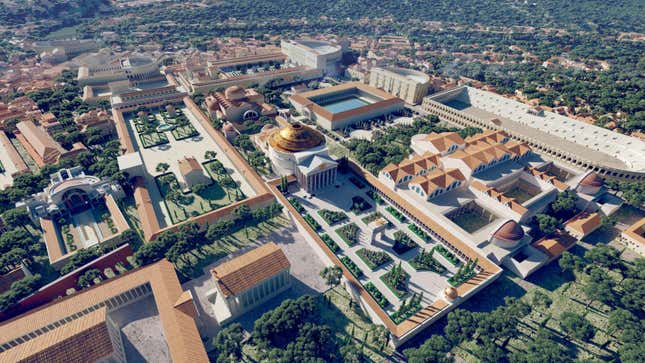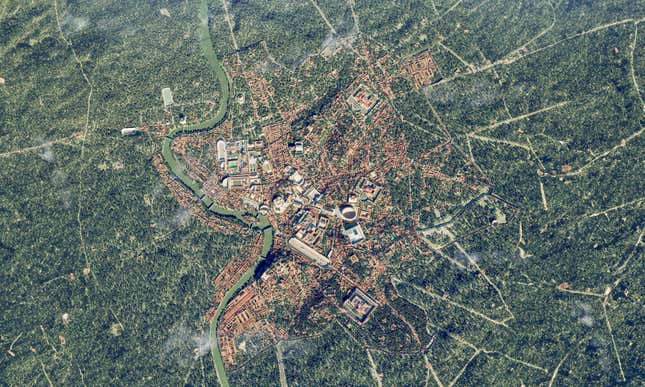
A new 3D tour of ancient Rome allows you to explore the imperial city as it appeared in the 4th century CE. The tour, produced by the education technology company Flyover Zone, is the fourth iteration of the 3D model.
The tour’s full name is “Rome Reborn: Flight over Ancient Rome,” and it’s hosted on Yorescape alongside 13 other virtual tours of sites from ancient civilizations. The first version of the virtual flyover was published in 2007, the second the following year, and the third in 2018. Version 4.0 has better graphics than the previous iterations, giving the scale model a more realistic look.
Rome Reborn was first dreamt up in 1974 by Bernard Frischer, an archaeologist and digital humanist at Indiana University. The digital humanities have come a long way in the intervening decades, to the extent that archaeologists can now digitally “unwrap” and read scrolls, like those burnt and buried in the destruction of Roman towns Pompeii and Herculaneum in 79 CE.
“Teachers can use this and other tours on Yorescape to take their students on virtual field trips to the cultures they are studying,” Frischer said in a press release. “Armchair travelers can explore great heritage sites without having to leave home. Yorescape can help travelers to prepare for a trip to Rome, get more out of a trip by using it once they have arrived, and keep their memories alive once they return home.”

According to the Yorescape website, the Rome flyover tour is just under two hours, and features 61 stops highlighting the city’s geography, marketplaces, temples, and other cultural landmarks.
Rome Reborn 4.0 also benefits from new archaeological discoveries and updated recreations of known monuments and structures, including the Baths of Caracalla, the Stadium of Domitian (where Piazza Navona now is), and three theaters. It shows the city as it looked in 320 CE, before the capital of the empire was moved to Constantinople under the emperor…yes, Constantine the Great.
“Our goal is not to replace real-world tourism but to enhance it,” Frischer added.
Indeed, the model also includes locations (named “Time Warps”) where users can see how ancient sites appear in Rome today. The model contains approximately 7,000 buildings that would’ve stood in the 4th-century city.
We may not be able to time travel, but exploring ancient Rome in high-definition is a not-too-distant second choice.
More: Archaeologists Unearth a Fanciful Ancient Winery Near Rome